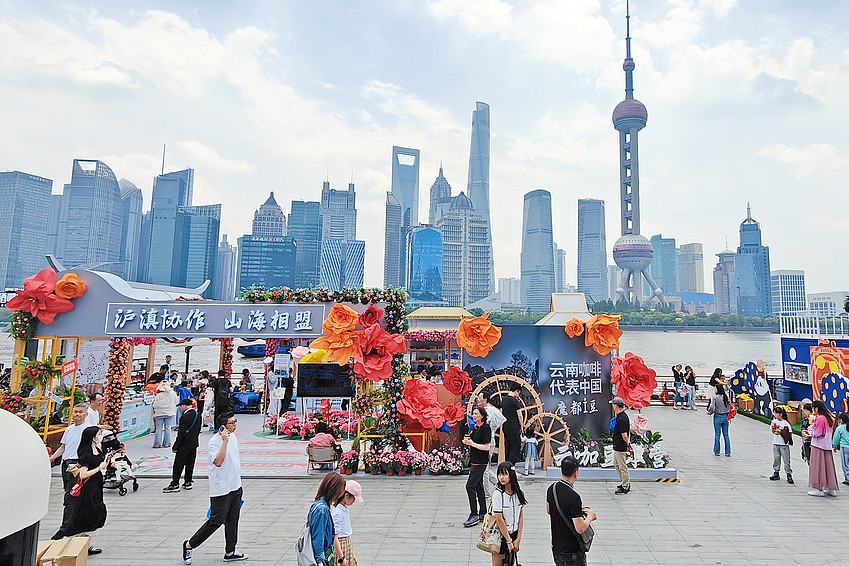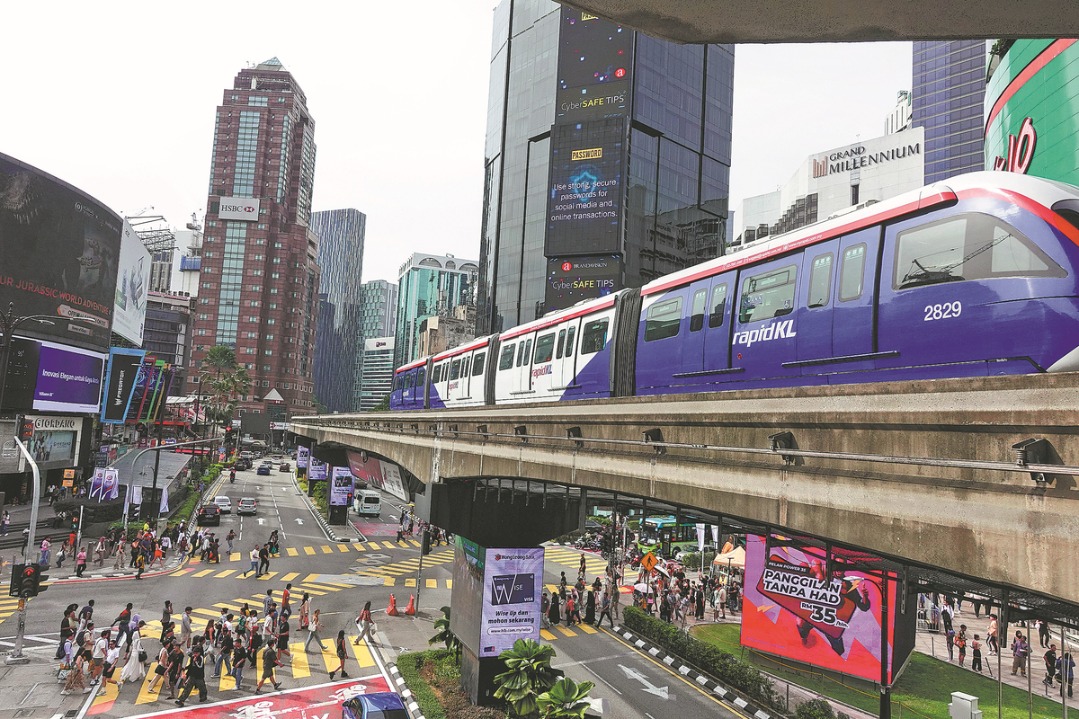China opens the door to a new energy future

Energy is transforming from extracted commodities such as coal, oil and natural gas to manufactured products such as solar photovoltaic panels, wind turbines and batteries. This shift helps explain why China, a manufacturing superpower, has emerged as the prime mover in the new energy economy, leading across electro-tech manufacturing, innovation, deployment and exports.
In fact, manufacturing is the most visible pillar of China's energy revolution. In 2024, China produced four out of every five solar modules and battery cells in the world, more than two-thirds of the electric vehicles (EVs), and refined on average seven of the 10 critical minerals that underpin them. According to an International Energy Agency estimate, China's solar panel and battery manufacturing capacity alone is more than what is required to achieve the Paris Agreement's goals.
Less visible but no less consequential an area is innovation. Today, China is as much the research center of energy transition as its factory. The country's share of patent applications in clean energy technology has risen from about 5 percent in 2000 to more than 75 percent, while Chinese corporations' R&D spending in the energy sector now nearly matches that of the European Union and the United States combined.
This translates into real technological advances. For example, batteries with greater density, faster charging capacity, fewer inputs and lower costs so they can electrify trucks, ships and short-haul flights.
The rapid deployment of clean energy is the third factor fueling China's energy revolution. The sheer scale and pace of increase of clean energy deployment make Western efforts look sluggish. For instance, Shandong province alone has more solar panels than Italy and Spain combined, while Guangdong province has more EVs on the road than the whole of Germany. Also, China's installed high-voltage direct current cables are 100 times higher in number than those in the US. When it comes to electro-tech deployment, years in the West are months in China.
China is often in the headlines for renewable energy deployment. But what really sets the country apart is electrification. China is electrifying its economy faster than any other country, with electricity's share in the energy mix increasing by about 10 percentage points per decade. In stark contrast, economy-wide electrification sector has been stagnant for a generation in the EU and the US.
The export of China's "new three" (solar panels, lithium batteries and EVs) is also booming. Last year, China exported solar modules which could generate an estimated 242 gigawatts of solar modules, more than tripling in five years, with half of them shipped to emerging markets.
Pakistan presents an apt picture of what's possible. Since 2018, the solar panels Pakistan has imported from China are larger than the rest of the country's power sources (in gigawatt terms).
China's EV story is equally impressive. Over the past decade, China has transformed from a net importer of cars to become the world's largest car exporter. In 2024, emerging economies became China's biggest markets for EVs, overtaking the EU. The value of Chinese-made EVs exported to the emerging economies surged from about $470 million in 2020 to $16.5 billion in 2024.
Chinese electro-tech exports enable emerging market economies to more affordably and rapidly meet their rising energy demands. In fact, one-fifth of the emerging market economies have overtaken developed economies in terms of solar and wind power use, while about one-fifth have higher electrification rates. From Brazil to Morocco, and from Egypt to Vietnam, countries are harnessing electro-tech to boost economic growth.
Critics argue that electro-tech imports merely swap one dependency for another: Saudi Arabian oil out, Chinese solar panels in. But this misses the difference between renting and owning. Fossil fuel imports are a recurring expense that never ends. Electro-tech imports are a onetime investment which produce energy for decades.
Furthermore, thanks to its know-how and financing capability, China is building local electro-tech supply chains across the world. Over the past five years, Chinese EV and battery companies have made substantial investments to build production facilities across key emerging markets such as Indonesia, Thailand and Brazil.
China is indeed becoming the world's first electro-state — a nation that leads across renewables and electrification, manufacturing and invention, domestic deployment and global exports.
History offers a useful parallel. A little over a century ago, Henry Ford launched his Model T, and opened the door to cheap automobiles and the "Age of Oil". The mass production assembly line became the new industrial common sense. The US dollar was the currency, highways and suburbs were the new geography, and "Pax Americana" the geopolitics. Ford, and the US, didn't so much manufacture a car as manufacture a future, a future where the US was the main character.
As we enter the "Electro-tech Age", the pattern is repeating itself. Except this time, the main actor is China. Solar panels and batteries are the tip, and the electro-tech era is the iceberg — a technology revolution that reinforces China's rise, perhaps China's century.
Today, advanced, automated, precision manufacturing is the new industrial common sense, Jiangsu the new Detroit, electrons the new oil, and sunny emerging markets the new geography.
China is not only manufacturing electro-tech hardware; it is manufacturing the electro-tech future. A future of cheaper and abundant energy, but also one that has risks for countries slow to embrace it. As the EU deliberates and the US retreats, emerging markets are racing into the electro-tech age.
The views don't necessarily reflect those of China Daily.
Sam Butler-Sloss is a manager at Ember (a global energy think tank); and Kingsmill Bond an energy strategist at Ember.
Today's Top News
- Italy's PM accused of complicity in genocide
- Taiwan secessionists deluding themselves believing external support will win the day: China Daily editorial
- Two years on, Gaza's agony calls for action: China Daily editorial
- 2025 Nobel Prize in Chemistry awarded to 3 scientists
- Egypt's President invites Trump to attend Gaza's deal ceremony when reached
- National Day Holiday showcases China's robust economic vitality






























